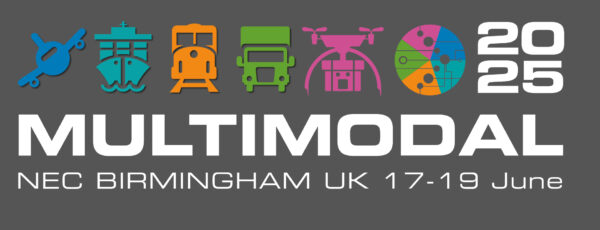
The Cost Iceberg: Recruitment in the Shipping and Logistics Sector
This might sound bold but here goes. How some recruitment agencies operate is wrong. Their priorities are upside down. Their focus on the wrong thing. Not matching the right candidate with the right opportunity. Pushing candidates with some skill, some experience that, sort of, pretty much, even just about, match what the client is looking for. Not exactly what the client needs.
This is a sure-fire way of slipping up. Upsetting both the client and the candidate. The result? Damaged relationships. A lack of trust. Possibly a loss of revenue. No client. No candidate. All because recruiters didn’t take the time to get their approach, their strategy to recruiting client right.
This demonstrates a lack of understanding of client needs. Even a lack of care which is worse. Think about it, you wouldn’t send a freight forwarder for a job as a maintenance electrician, right?
Any recruitment consultancy worth their salt knows how to avoid this. They know how to get their recruitment right. Match the right candidate with the right role.
What is the Iceberg Effect?
The iceberg theory of recruitment focuses on employee skill, experience and knowledge. What candidates have done and where their strengths lie. But it’s more than that. It’s understanding personal characteristics, career goals. Experience collaborating, working with complete autonomy, meeting deadlines. It’s fitting into the company culture. Adapting. Thriving.
Knowing this paints a picture, one that allows recruiters to match the right candidate with the right vacancy, the right employer. Conversely, some employers in the logistics and transport sector may be established players. They may even have high staff retention rates. Be trusted by customers. And yet, they may suffer with inefficient, outdated, even costly recruitment models.
This could be costing them.
The bottom line with recruitment is you get what you pay for. The idiom that everyone knows and can apply to a wealth of transactional circumstances. But this doesn’t make it any less relevant.
Invest in your recruitment. Leverage the experts. Recruiters that know the shipping and logistics sectors inside out. Recruiters with the contacts. The knowledge. The experience. The infrastructure to meet your talent needs and you’ll get real value for money. You’ll thrive by building strong foundations, leveraging the most important asset of any business – its people.
Hiring Costs vs. Recruitment Costs
Recruiting doesn’t come cheap. Employers have a choice. They can hire a dedicated, small in-house recruitment team. Even give the responsibility of recruiting to a single person. One that works full-time to find and hire new talent. The other option is to use the services of a dedicated recruitment agency. One with an established reputation. Who knows the shipping and logistics industry. Who has the contacts. Who knows how to match the right candidate with the right job.
A recruitment agency like LME.
Hiring doesn’t come cheap. Choose to employ your own dedicated in-house recruitment team – or consultant – and you’ll be faced with costs to advertise, screen, interview, maybe complete background tests. And this is all before the candidate starts their first day.
The costs can easily run into £1000’s. There’s no guarantee of finding the right, or indeed any suitable, candidate. Recruitment can take months. Something that’s not exactly helpful when you need someone right now!
Recruitment, like hiring, will cost your business money. The only question is how much? There’s a big difference between hiring and recruitment? Use an experienced, customer-centric, knowledgeable recruitment agency like LME and you’ll automatically give yourself a better chance of finding that/those candidate(s) who will add value to your business.
But there’s more. Recruitment agencies like LME will efficiently recruit candidates with zero hassle or disruption to your business. Then there’s the insight. The contacts. The knowledge. The efficiency. The experience. A couple of phone calls is all it can take to find your business the ideal candidate.
Now, of course, recruiters like LME charge for their services. However, hire a full-time, in-house recruitment team and you’ll have the salary of your recruitment team, internal commissions or bonuses, online advertising, IT software, office heating and electricity… the list goes on to consider. And you might get the hire wrong. Then you’ll be back to square one.
The more you think about it, the more attractive hiring a specialist recruiter, like LME becomes. And we’ve not even talked about the hidden recruitment costs like a manager’s time away from their day-to-day duties.
Recruiting isn’t cheap. As we’ve said. Be shrewd with your spending. When you engage the services of a reputable recruitment agency, like LME, you pay for expertise. Knowledge. Consultants with combined decades of experience, with a proven track record of helping operators in the logistics and shipping sector build solid foundations and prosper by leveraging their most important asset – people.
There Can Be Much Hidden Under the Surface
Experienced recruiters know how to communicate with clients to determine exactly what type of talent they need, what employer would suit them, even if clients and candidates don’t know themselves.
They do this by probing deeper. Asking the right questions. For employers in the shipping and logistics sector, it’s the ability to identify pain points and propose solutions. Get the right person for the job. For instance, you might think you need to prioritise hiring a freight forward operator but what they really need is someone with experience specifically working on the export desk.
A knowledgeable recruiter who knows what they’re doing, LME for example, will learn the challenges employers face and determine exactly what they need. Be that a single hire, a whole new department or strategic hires over a period of time.
When speaking to candidates, it’s about asking the right questions. This helps recruiters to learn more about who they are, their experience and what they want. Remember, people are more than a CV, a piece of paper that summarises where they’ve worked, what they did and for how long.
Candidates may have experience working as a warehouse supervisor but have ambitions of their next role being a warehouse manager. They may want to migrate from the industrial to the commercial sector. Need to achieve a specific salary to support their family. Candidates may have the temperament, the knowledge for a managerial role, but never considered themselves ‘management material.’
It’s only through digging under the surface that recruiters and candidates can learn more about themselves and the right direction to take.
The Pitfalls of the ‘Good Enough’ Attitude of Some Business Leaders
Businesses have budgets to work to. We get it. Important, strategic decisions shouldn’t be made on a whim. We get that to. However, sometimes business leaders fall into a stagnant way of thinking. That things are ‘good enough.’ They don’t think about strategic hires. Ways to improve. To be more progressive.
Then there’s change. The old adage of ‘if it isn’t broke, don’t fix it,’ can hold businesses back. Remember, in today’s competitive commercial world if a business is not moving forward, it’s going backwards. On the surface, to some business leaders, change may appear to be challenging to manage, but it’s necessary to thrive. Poor management, including change management, can reduce performance – even be a catalyst for top performing people to decide they want a new challenge.
Then there’s what top performers could be consider a lack of support. The lack of top tier talent around them. Remember, the best people aren’t content to work with average or even below-par colleagues. They want to work with the best people. These can be the ideal candidates for a position in a forward thinking business.
Lastly, consider how much a ‘good enough’ attitude can cost a business. Think of it this way. A dedicated packing operative may load/unload and pack 20% more products that a good enough packaging operative. This improves business efficiency, customer service, brand reputation, and maybe even revenue and profit.
Business leaders who strive to build a business with the best people they can find to meet the demands of every role will be successful. Simple, we know. But true.
Recruiting Cost Money… Don’t Pay Twice
When all’s said and done, recruitment costs money. There’s no denying that. However, if you choose NOT to leverage the skills and experience of a recruitment consultant like LME, you are taking a big risk.
Bad hires cost money. From the advertising and recruitment to the onboarding and of course, once candidates get their feet in the door, operators incur costs.
Your best bet? Employ an experienced recruiter. If you don’t, you may end up paying twice to recruit for the same role.
Interested in learning more about how both clients and candidates can optimise their recruitment in the shipping and logistics sector? Get in touch with LME TODAY.






